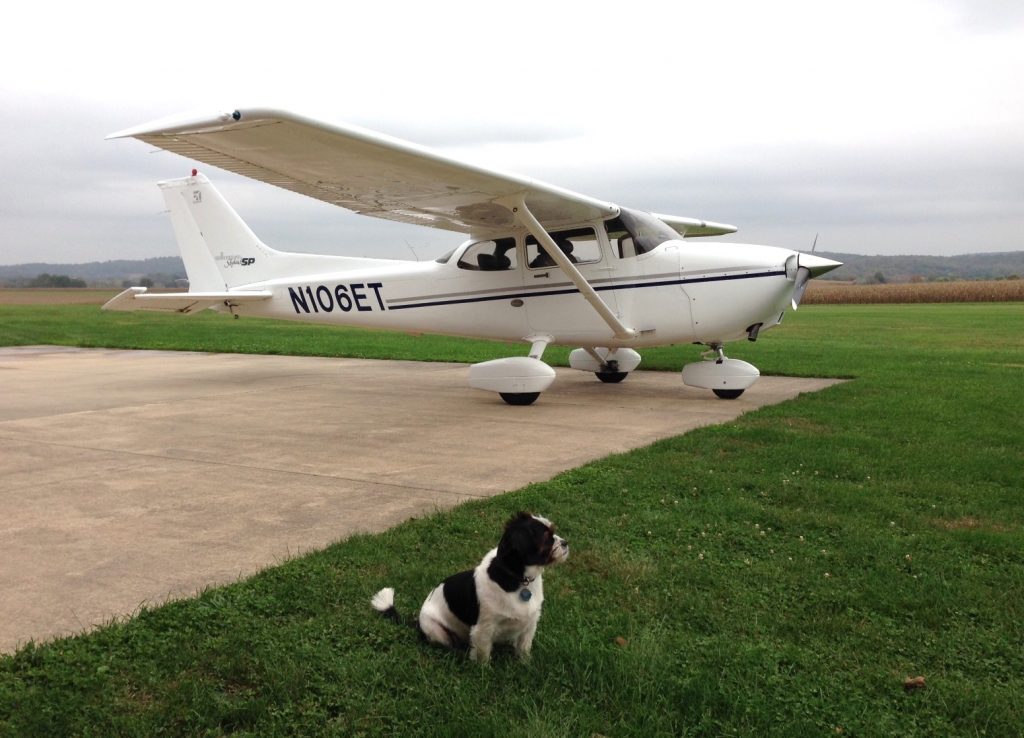The director of Eastern Mennonite University’s two-year-old aviation program has his feet firmly planted on the ground most days, helping new pilots find their wings. It’s a path John Sibole started on as a 16-year-old that has led to experiences in almost every corner of the aviation industry – he’s washed airplanes, flown in the Air Force, run his own flight school, and worked as an engineer, airline pilot, and safety inspector. He’s seen the glaciers in Greenland and Labrador, the Amazon rainforest in Peru, and the Alaskan wilderness, all from the cockpit.
This wealth of knowledge informs him as an educator. “I really try to communicate that aviation is a multifaceted endeavor … there are other paths that our student aviators might want to take besides being an airline pilot,” Sibole says.
The aviation program, offered at EMU’s Lancaster site, is an educational track within the Leadership and Organizational Management degree. Students split their time between on-site classes at EMU Lancaster and flight training at Aero-Tech-Services, Inc, in Lititz.
“In addition to technical excellence, they’re being nurtured as future aviation leaders,” Sibole explains, “in a Christian institution whose value system includes promoting the welfare of local and global communities.”
Missions and humanitarian track in the works
Sibole was working as an inspector for the Federal Aviation Administration (FAA) when he accepted the position with EMU Lancaster, where he already served on the aviation program’s advisory committee.
“I was very happy in my work at the FAA, but began to sense a calling to come to EMU full-time,” says Sibole. “My vision is that this program will produce graduates with the best technical foundation, the potential for leadership, and a framework in which to continue to form godly values.”
What’s next for the program? Sibole is preparing to introduce a missions and humanitarian track to the curriculum. And with the combination of capable administrators and the excellent flight training partner Aero-Tech Services, Sibole says, “we have an agile, intelligent platform from which to move this into the top tier of collegiate aviation programs.”

An adventurous resumé
Sibole has always had a knack for mechanics. As a child, he tinkered with with go-karts, motor scooters, and cars. He was bitten by the aviation bug when a family friend took Sibole and his mother flying.
“Apparently something took root there,” Sibole says. At age 16, in 1967, he started working as a “line boy” at a small airport – gassing up the planes, checking the oil, and washing windshields. His dollar-an-hour wages all went towards flying lessons, which his father also helped pay for. He then earned a degree in mechanical engineering in 1972 from Lehigh University on an Air Force ROTC scholarship.
Sibole has gone through six engine failures while flying: three in jets, one in a light airplane, and two in helicopters. But the seasoned pilot says that the hardest part, in one case, was not making an emergency landing, but navigating danger on the ground afterwards.
Once, during a safety inspector training course, Sibole was flying a helicopter over the St. Johns river basin near Cocoa Beach, Florida, “which is very scenic but which also is full of alligators, whom we would see sunning themselves as we flew over.”
The engine cut out. Sibole and his instructor safely set the craft down in a patch of solid ground within the swamp, but then had to run about 50 yards – through alligator habitat – to the helicopter that came to pick them up.
“The engine failure didn’t bother me at all, but these gators were enormous,” Sibole says. “And I had heard that they’re very quick!”
